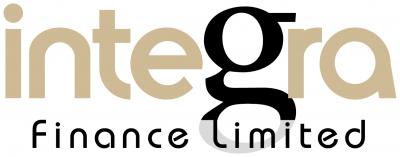Corporate Planning

Most small to medium sized firms are unprepared in some areas of financial planning.
The consequences of this oversight may simply result in paying more tax than necessary, or it can be much more serious in that events which can and should be insured against are left uncovered, with possibly disastrous consequences for the firm and its owners.
The main areas that normally need to be reviewed and actions planned
Staff Benefit Packages
Under the new pension rules introduced in the Pensions Act 2008, every employer will have to give their workers the opportunity to join a workplace pension scheme that meets certain standards. Depending on how old they are and how much they earn, many workers will be automatically enrolled into the schemes, others will be entitled to join them if they want to. Our experienced advisers can assist with the implementation and maintenance of these schemes.
If you are not offering life assurance, income protection cover, critical illness insurance and medical insurance to your staff then you are not maximising the value-for-money opportunities in your staffing costs.
In many cases your employees will perceive the value of the benefit to be much higher than the actual cost of providing it, which makes such benefits a very useful tool in remuneration negotiations with either individual staff or groups / unions.
The benefits not only accrue to your staff, but also assist in the efficient management of the company by providing cover for certain risks
Keyman Risks
As a company you insure your cars and your equipment against disaster like fire and flood, and include compensation for loss of profits as well as asset replacement. Do you insure your company's cash flow against loss of key members of staff to death or disease?
Draw up a list of your Key People who, very broadly, are those whose skills are such that no one else could step into the breach should they die suddenly of a heart attack or the like.
Ask yourself what sort of damage their loss would entail. This can range from the catastrophic (in the event of the death of an owner director this can result in the calling in of all debts, bank overdrafts etc and subsequent failure of the firm) to the merely expensively inconvenient (eg hiring a consultant locum at £500 a day for several months while a new person is recruited).
Directors Pensions
The value of pensions and the income they produce can fall as well as rise. You may get back less than you invested.
Tax treatment depends on individual circumstances and is subject to change.
Provided that the company produces more than enough profits to meet the income needs of the owners, the disposal of the surplus is largely a matter of tax planning.
In brief it is possible to reduce your corporation tax, income tax and even National Insurance liability by careful use of pensions. At the same time you can create a private fund that can lend money to the company (as a very attractive alternative to Banks, and in which all your interest payments go straight back into your pension fund), buy corporate property, and even be used to smooth the transfer of the company from the older to the younger generation.
Shareholder Protection
The shareholder/directors in limited companies – and, indeed, members of partnerships – often need protection against the impact that the death of one of the shareholder/directors or partners might have on the financial viability of a business.
For this reason, shareholder/director or partners can arrange life assurance based on the amount that would have to be raised in order to “buy-out” the deceased participant's share in the business. In this way, the death of a principal will trigger payments adequate to meet the cost of buying the share of the business inherited by the former principal's beneficiaries. This sort of arrangement will normally include all the partners or shareholder/directors, although in some cases older individuals may be left out, if there is an alternative strategy for business continuity, such as the introduction of another individual from within the business with ownership remaining unaltered.
The Financial Conduct Authority do not regulate auto enrolment and employee benefits.
